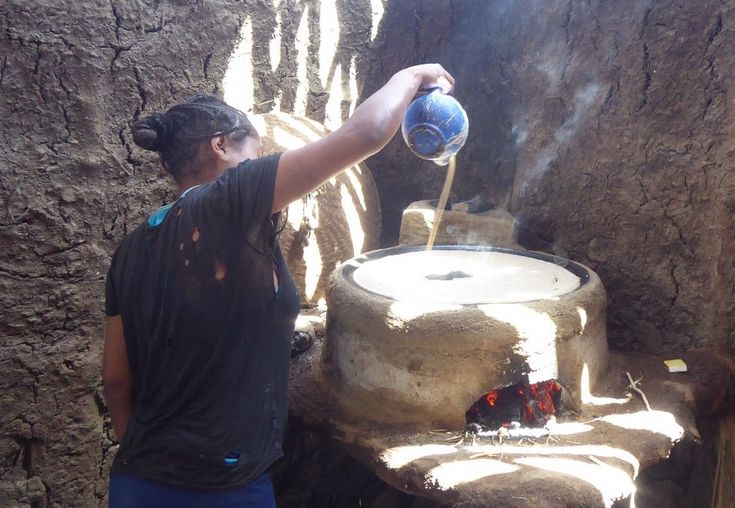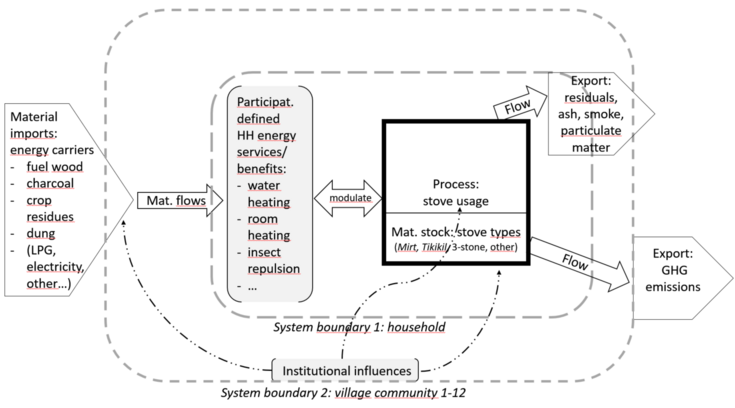Household energy services derived from cooking and their interrelations with material stocks and flows. A socio-ecological case study in Ethiopia.
SUPERVISOR: Helmut HABERL
PROJECT ASSIGNED TO: Harald GRABHER
Cooking practices of households (HH) in least developed countries (LDCs) are largely determined by their needs for energy services (ES) and related benefits, the available energy carriers and the stoves used. In LDC contexts, cooking is mainly based on biomass combustion. This overall biomass demand for food, feed and fuel has been linked to unsustainable environmental impacts such as deforestation, soil erosion and biodiversity loss. Associated indoor air pollution (IAP) is causing widespread illnesses and deaths. Inefficiencies of the fireplaces or stoves used compound adverse effects.
Complex interdependencies between ES, energy carriers, stove types and everyday practices exist with regard to biomass as the major HH energy source. Cooking practices offer a range of ES besides food and water preparation such as illumination and thermal comfort, and additional benefits, for example insect repulsion or income generation. Socio-ecological metabolism (SEM) research and the stock-flow-service (SFS) nexus approach are especially suitable to investigate human-nature relations and their sustainability challenges. As the linkages between HH energy, ES demand and the practices used to attain them are as yet poorly understood, uncovering these interrelations is crucially important for scientific advances in SFS nexus research. Yet, most SFS research is done at national scales and bottom-up ES research remains scarce and linkages to concrete social processes at the HH level are rarely investigated.
In my professional work in rural Ethiopia I have frequently noticed the variety of HH ES needs, and the challenges it poses for efficient energy carrier usage and improved cookstove (ICS) adoption. The proposed investigation is rooted in the research practice of ecological anthropology and combines SEM methods with practice-centred, innovative social research to generate novel insights concerning both physical and social dimensions of energy use in rural HHs. The research project aims at answering the following main questions: How do HH ES demand, available stove types, energy carriers and cooking practices interact? What is the impact of HH-level ES demand on material and energy flows as well as greenhouse gas (GHG) emissions? What insights for a potential HH sustainable energy transition (SET) does the ES perspective offer, taking into account both social and material influences?
This study closes a fundamental gap in empirical SFS research by applying the concept at local scale to investigate linkages to concrete social processes in rural HHs for the first time. The integration of HH-level ES into Material and Energy Flow Analysis (MEFA) in an LDC as a methodological innovation will increase the usefulness of the analytical framework. Moreover, this research project will present biophysical mass/energy flows and GHG emissions based on real-life, empirically established HH-level ES. This deepened understanding is urgently needed to move the energy transition processes forward and can impact on the framework conditions for SETs to go beyond the local case study.



